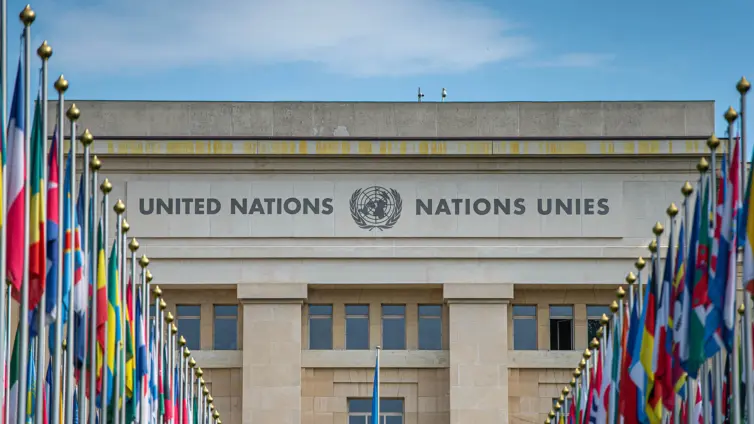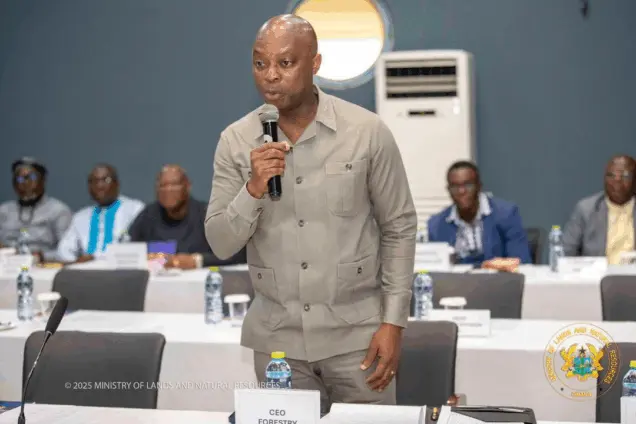In a bold move towards a sustainable future, Ghana has embarked on an ambitious energy transition plan, projecting a need for $562 billion in investment by 2070. This initiative, spearheaded by the Ministry of Energy, aims to revolutionize the nation’s energy sector, shifting it towards cleaner and more sustainable sources. However, the government acknowledges that achieving this monumental goal requires a collaborative effort beyond public funding.
Dr. Robert Sogbadji, a leading voice in Ghana’s energy sector, emphasizes the critical need for partnerships. He believes that a successful Ghana energy transition plan hinges on the active participation of the private sector, development partners, and multi-national banks. Only through such broad collaboration can Ghana navigate a smooth and effective shift towards a greener energy landscape.
Ghana’s commitment reflects a broader global movement toward sustainability, with nations worldwide recognizing the urgency of transitioning to clean energy. Ghana’s framework is detailed and comprehensive, outlining specific targets and strategies for achieving a complete energy transition by 2070.
“We need about $562 billion to complete this energy transition by 2070. It’s not only the government that has to cough up this money,” Dr. Sogbadji stated, underscoring the magnitude of the investment required and the necessity of shared responsibility.
The substantial $562 billion price tag attached to Ghana’s energy transition plan reflects the extensive investments needed across various sectors. A significant portion of the funds will be directed towards infrastructure development, particularly in renewable energy sources such as solar, wind, and hydro power. These investments aim to create a robust and diversified energy mix, reducing Ghana’s reliance on fossil fuels.
Beyond infrastructure, the plan calls for substantial investment in technological advancements. This includes the implementation of smart grid systems, which enhance the efficiency and reliability of energy distribution, and the adoption of energy-efficient technologies across industries and households.
The energy transition also presents an opportunity for job creation and economic growth. Funding will be allocated to green jobs and skills development programs, equipping the workforce with the expertise needed to thrive in the emerging green economy. Moreover, the plan includes sustainability initiatives focused on reducing greenhouse gas emissions and enhancing climate resilience, safeguarding Ghana against the adverse effects of climate change.
Ghana’s strategy involves several key initiatives. One crucial aspect is expanding electricity access beyond the current 89%, ensuring that all citizens, particularly in remote areas, have access to reliable and affordable power. All new energy initiatives will be aligned with sustainability goals, ensuring that every project contributes to the overall vision of a clean energy future.
The government also recognizes the importance of engaging local communities in the transition process. This involves working closely with regional and district-level leadership, as well as launching public awareness campaigns to educate citizens about the benefits of clean energy and encourage their participation. Ongoing projects, such as the implementation of solar mini-grids for island communities and the development of 33 new mini-grids across the country, demonstrate Ghana’s commitment to practical and impactful solutions.
The successful implementation of Ghana’s energy transition plan promises a multitude of benefits for the nation’s economy and environment. The creation of green jobs will stimulate economic growth and provide new opportunities for employment. Enhanced energy security, through a diversified and reliable energy supply, will reduce Ghana’s vulnerability to external shocks and ensure a stable foundation for economic development.
Furthermore, the transition will lead to a significant reduction in greenhouse gas emissions, contributing to global efforts to combat climate change. By strengthening its ability to withstand and adapt to climate change impacts, Ghana will protect its natural resources, infrastructure, and the well-being of its citizens.
The private sector plays a vital role in achieving Ghana’s ambitious energy transition goals. Private companies can contribute through direct investment in renewable energy projects, bringing innovative energy solutions through technology transfer, and collaborating with the government and local communities through strategic partnerships. By adopting sustainable practices in their operations, businesses can further contribute to Ghana’s green agenda.
Ultimately, Ghana’s energy transition represents a significant step towards a sustainable future, requiring collaborative efforts from the government, private sector, and international partners to achieve a cleaner, greener Ghana.
Image Source: MYJOYONLINE


















